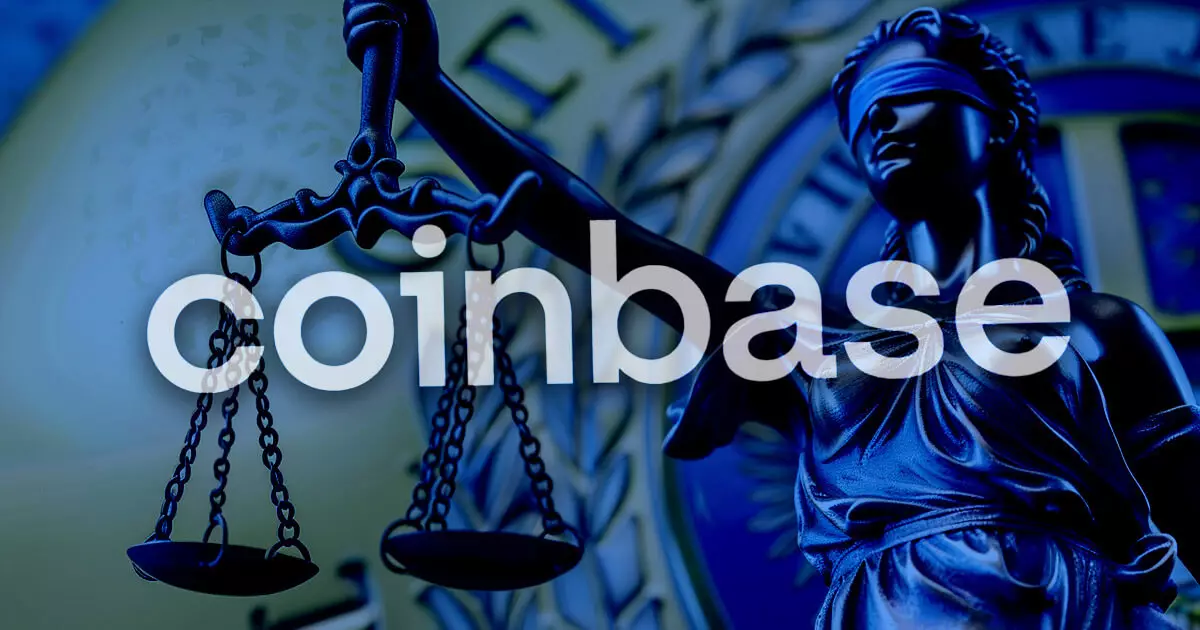The ongoing legal tussle between Coinbase and the US Securities and Exchange Commission (SEC) has significant ramifications for the cryptocurrency landscape. Coinbase, a prominent cryptocurrency exchange, has initiated a motion for partial summary judgment to gain access to internal SEC documents that would potentially clarify the agency’s enforcement strategies towards the burgeoning crypto sector. This legal maneuver comes in the wake of the SEC’s refusal to disclose information requested by History Associates, a firm hired by Coinbase to analyze the regulator’s position on digital assets.
The crux of the dispute lies in the SEC’s denial of Freedom of Information Act (FOIA) requests made by History Associates. Initially, the SEC invoked Exemption 7(A) of the FOIA, a provision designed to protect documents linked to law enforcement activities. However, as the situation unfolded, the SEC conceded that this exemption may no longer be valid but nevertheless sought to stall the document review process for another three years. This extension has drawn criticism, with History Associates and Coinbase arguing that the delays are unwarranted and reflect an unwillingness to be transparent about the regulatory framework governing cryptocurrencies.
In response to the SEC’s prolonged timeline, Coinbase has suggested a novel two-track approach. This strategy prioritizes the internal communications of the SEC for immediate review while deferring the examination of third-party records. By advocating for this bifurcated process, Coinbase seeks to expedite clarity on how the SEC interprets and enforces securities laws concerning crypto entities, highlighting a pressing need for concise regulatory guidance in an industry known for its rapid evolution and ambiguity.
The Heart of the Regulatory Challenge
Coinbase’s dispute is emblematic of a larger concern within the cryptocurrency industry regarding the SEC’s interpretation of what constitutes a security. There remains a notable lack of clarity surrounding the designation of various tokens in this context, thus creating an atmosphere of uncertainty for companies operating in the space. This is particularly relevant in light of events such as Ethereum’s transition from a proof-of-work to a proof-of-stake consensus mechanism, an evolution that begs the question of how these changes are perceived under existing securities laws.
Historical Context of SEC Enforcement
This lawsuit also references significant historical enforcement actions taken by the SEC, including the case against Zachary Coburn, who operated the decentralized exchange EtherDelta. Coburn faced charges for allegedly managing an unregistered national securities exchange, leading to a settlement involving nearly $400,000 in penalties. Such precedents raise concerns about the SEC’s approach and whether it unfairly constricts innovation within the crypto space.
Ultimately, Coinbase’s lawsuit against the SEC is more than a quest for transparency; it is a vital push for regulatory clarity in a sector that remains nascent and fraught with uncertainty. With many industry players advocating for clearer guidelines, the outcome of this case could significantly influence how cryptocurrency companies interact with regulatory bodies and how the SEC defines and enforces its policies in an ever-evolving digital economy. The outcome will not only redefine Coinbase’s operational landscape but may also set critical precedents for the entire blockchain ecosystem.

